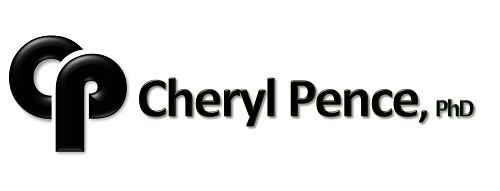
Network to Gain Helpful Insights from Others
Conducting online research about careers can be helpful, but it often leaves out important insights and information about the everyday experience of a particular job. To gain helpful advice from professionals in the career, conduct interviews with people who have a job(s) of interest to you. The information below will guide you through the steps and offer several suggested questions to ask in your interview. If you are exploring opportunities other than a job, think about how networking and interviewing others with helpful insights can help you learn more about relationships, groups, and activities in which you might want to get involved.
Benefits
Informational Interviews can be a valuable source of information to help you gain insight into a career or specific job that may be a right for you. Informational Interviews have several benefits, including:
- Expanding your professional network. Informational interviews can connect you directly with people who work in a field you are considering, potential companies in which you may be interested, or someone who can put you in touch with helpful contacts.
- Discovering “first-hand” information about a career field. Reference books can provide facts about a job, such as salary and the employment outlook, but information interviews provide a personalized perspective of the job and organizational environment.
- Gaining access to the “hidden” opportunities. An estimated 20% of all job openings are advertised! Direct contact and networking are essential to find out about the unadvertised job market.
- Improvement of self-confidence and interviewing skills. Less stressful than a typical job interview, you can gain practice and confidence talking with potential employers in your field.
- Getting answers to tough questions. While you wouldn’t ask certain questions during a job interview (i.e. salary, vacation time, work-family balance), you can strategically gain important information and advice about the industry or company you are researching.
Steps to Set-up and Conduct an Informational Interview
You are encouraged to obtain more than one informational interview to gain a more well-rounded perspective of the career field (or another area) you are exploring. The following steps explain how to set up and conduct an informational interview. The more prepared you are for an information interview, the more you will get out of it! Some things you will want to consider include:
Determine Your Goals
First, you need to decide your goals of the informational interview. You may just want to explore career options to help you narrow down your schooling choices or you may be embarking on a job search. Your goals will help guide the process as well as the questions you will choose to ask.
Do Your Research to Narrow Your Interests
Once you have decided your goals, brainstorm all the people, jobs, or companies that would interest you. That does NOT mean looking at the job ads and seeing what is available because research shows that 80% of available jobs are not advertised because of the time and expense involved. Think outside the box and create your own job description. What type of job do you want? With whom do you want to work? Where do you want to work? Basically, create your dream job list. The Occupational Outlook Handbook or O*Net Online may be helpful in learning more about careers in your field of interest.
Determine Who You Want to Interview
Identify potential contacts or employers that might provide you answers to the types of questions you have. Also let your friends, family, and professors know what you want in case they have ideas of where else or whom else you might contact. Then contact them. Most professionals enjoy informational interviews because they enjoy talking about themselves and their experiences. Find out the best times to call and be respectful to everyone you encounter. Make it clear that you’re not looking for a job, but that you are just trying to obtain information. Once you have contacted the individual, state your purpose. You might begin your conversation like this:
“Hi, Ms. Smith, my name is ___________. I’m a student and plan to graduate soon. I will soon be entering the career field and I am trying to find out as much as I can about my options. I have learned a lot about this field in the classroom or during my internship, but I really feel it might help to talk to someone who works in an area of my interest. I would appreciate meeting with you to discuss your career if you have the time. The interview would only take approximately 30-45 minutes to complete, depending on your availability. My schedule is flexible and I can meet with you at your convenience.”
Prepare Your Questions
The next step is preparing your questions. Based upon your goals for the interview and the results of your research of the area, prepare your questions for the interview. Use your time to ask the questions that are most important to you and leave out the irrelevant ones. Try to make them open-ended questions and keep the tone conversational, rather than simply rifling off questions. The suggestions below may give you some ideas; however, you are encouraged to come up with questions specialized to your needs.
o What is a typical day/week like in your job/life?
o How did you become interested in this career/activity?
o What skills do you use in your job/life?
o What do you like and dislike about your job/activities?
o What did you find most surprising about your field?
o What do you wish you had known before you started?
o If you had things to do over would you choose the same path?
o How much do you work on your own?
o How much do you work with others?
o What is the work environment like (hours, atmosphere, people, etc)?
o Is there flexibility related to dress, hours, vacation, and places of residence in this field?
o What is a typical career path for this occupation?
o What are the related jobs in this field or organization?
o What type of person would be a good fit for this job?
o Who would not be a good fit?
o What are typical entry-level jobs in this profession and which ones are best for learning?
o What kind of experience and skills should I obtain so I will be best prepared for this job or field?
o What kind of academic/training preparation do you recommend for this occupation?
o What opportunities for advancement are there in this company?
o What is the average salary range for entry-level and seasoned professionals in this field?
o Can you suggest some ways a student could obtain the necessary and helpful experience?
o Who else in this field should I talk to?
o May I use your name when I contact them?
o Where else should I go for more information about this field?
Prepare for the Interview
Call the day before to confirm your appointment and the location and then plan to arrive a bit early just as you would for any business meeting. Review and finalize your list of questions and print a copy of your resume in case they ask for it during the interview.
Conduct the Informational Interview
While this is not a formal interview, you still want to look professional. You should dress according to their dress code (or at least business casual), arrive early for the interview and follow the proper etiquette for a job interview. Bring your questions and feel free to refer to them as necessary, but do not get lost in them; remember to maintain a more conversational tone. Take brief notes if desired.
Be Prepared for the Tables to Turn
While it is not appropriate to ask for a job, informational interviews are an effective way to find job openings and elicit information about a prospective employer. Bring a copy of your resume, but only provide it if you are asked. If the interviewee is interested, they will ask for your resume or begin to ask questions that you should be prepared to answer. The following are questions you may encounter:
o How did you become interested in this field?
o How did you choose to go into this career field?
o What skills could you bring to this field/job?
o What have you learned from your other job experiences that lead you to this field?
Follow up
To show your gratitude for their time, make sure you follow up by sending a thank you note within 24 hours after the interview. If you were given a referral, follow up soon after the informational interview; if there are any problems with the contact information, it will be easier to address while it’s fresh in their mind and they will realize that you are serious about your research.
The informational interview process can be fun, informative, and highly successful in finding a career field or job that best fit your interests. You may even be lucky enough to land your ideal job during the process! When you know what you want and you go for it, people will start to believe in your goals and want to help you succeed. I know it can work because it happened to me and others I encouraged to use this process!
Reflect
- How did the interview(s) affect your knowledge about the career(s) and your own exploration?
- What new information, ideas, and insights did you gain?
- Did the interview(s) increase or decrease your interest in the field?
